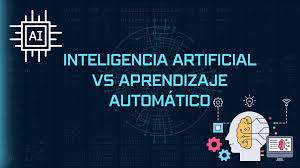Will artificial intelligence reduce our capabilities?

People must not only use AI well, but we must understand its limitations, its risks and develop skills that complement it.
ALICIA TRONCOSO*
In recent years we have seen how artificial intelligence (AI) has advanced at a dizzying pace , impacting numerous aspects of our daily lives. We use everything from virtual assistants to recommendation systems on streaming platforms on a daily basis. This coexistence with AI in our daily lives makes us ask ourselves the question: will it make us lose capabilities?
It is well known that AI has great potential for carrying out automatic and repetitive tasks , in which it can even achieve greater precision than people. This means that people are relegated to tasks related to human skills that are difficult for a machine to imitate, such as creativity, strategy or innovation . And although AI has improved efficiency, we are also seeing drawbacks such as the dehumanization of some jobs.
This dependency that people are acquiring with AI for everyday tasks is already having some consequences related to our capabilities. Nowadays, the massive and continued use of GPS and navigation applications for mobility, both with the car and when we go to a destination on foot, has meant that our orientation has been reduced and the ability to read maps for generations younger people is very limited.
We are also witnessing how spelling and grammar are becoming less and less known by people, due to the intensive use of automatic correction tools that incorporate much of the technology that we regularly use in our work. So we are witnessing a phenomenon of unlearning, and as we delegate tasks to AI, the capabilities we exercised with those tasks begin to atrophy, to the point that they may disappear completely.
In the educational field, AI can provide extraordinary resources, since the learning process can be optimized in a personalized way for each student, which can become an enriching experience. And precisely that is one of the trends of AI, personalization, but can the use of AI inhibit the development of skills such as critical thinking and complex problem solving in students?
Skills such as empathy and emotional communication stand out in social relationships. If our social relationships are increasingly based on interaction through social networks or messaging applications, could our social skills also weaken? All of these questions are worthy of deep reflection.
We cannot help but think about all these risks, although this does not mean we should see AI as a threat, but as a technology capable of complementing or expanding our capabilities instead of replacing or reducing them. Without a doubt, there will be a transformation of capabilities and skills that will be the result of the adaptation capacity that people have. AI and human skills must coexist and healthy use of artificial intelligence will help us achieve this balance.
Education, digital literacy, awareness and the integration of AI in an intelligent way in our lives will allow us to be a catalyst to improve our skills and well-being. People must not only use AI well, but we must understand its limitations, its risks and develop skills that complement it. It is important that we learn to make the most of its benefits, but without sacrificing the most precious asset we have: our humanity.
Alicia Troncoso Lora is Professor of Computer Languages and Systems at the Pablo de Olavide University (UPO) and President of the Spanish Association for Artificial Intelligence. He leads the UPO's Data Science and Big Data Research Lab research group, and his research areas are deep learning , big data and temporal data prediction.






